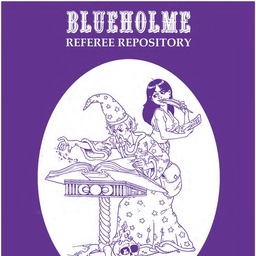So, there's this piece on Orcs and racism:
And they have a long blog post about Tolkien's racist origins of Orcs & "Eastern Men":
"The Orcs are definitely stated to be corruptions of the 'human' form seen in Elves and Men. They are (or were) squat, broad, flat-nosed, sallow-skinned, with wide mouths and slant eyes: in fact degraded and repulsive versions of the (to Europeans) least lovely Mongol-types."
—J.R.R.Tolkien, Letter #210
Which I agree is pretty horrible, I greatly dislike Tolkien the man, and his post-Hobbit work. The post is kind of a waste of time to read beyond that, I eyerolled 180° at the quoting-white-men-about-racism tone, and denial of other people of colors' different experiences (Jason Momoa in particular). Maybe that's just how James talks, all the goddamned time. Someone should set up a medical research fund. Anyway, I'm only in this to read about the Orcs, shit that happens on Earth is not my problem.
My old solution to the Orc problem was to make Orcs tolerated and playable if they lived in civilization, but so culturally different in their nomadic tribes, that you still had something like the classic Human/Orc war trope. That can be problematic when compared to how the US, etc. treated Native Americans and other indigenous populations, but it cut down on the genocides/"we kill all the Orc babies"; players treated Orcs like a hostile tribe of Humans, warred against them until they stopped being annoying, and made peace.
But then why not just use Humans? That's James Raggi's solution, which technically works, but it's not interesting unless you throw an enormous book of "What do the Saxons believe and why are they so awful?" at the players which you don't want to write, and which they won't read. In history it was pretty easy to tell what culture someone was by their artifacts, dress, and speech; but none of those are easily visible in Theatre of the Mind role-playing.
So in everything I've run or written in the last few years, I solved the problem by replacing Orcs with Beastfolk, humanoids with bestial features chosen off a table of local mammals. They behave almost exactly like my previous use of Orcs, and yet because they're not all green-skinned pig-men, and might even be cute & fuzzy, especially the young ones, suddenly reaction is completely different. It either arouses or annoys furries, neither of which is my intention, but that's a small price to pay for how radically it changes the conversation.
I don't usually want "half-breeds", because that directly leads to racial theory bullshit, but in a magical world full of Owlbears it's certainly possible for species to be crossed, and Edgy McEdgertons always want to be a half-breed Goblin/Dark Elf with a tragic backstory or some such, so unless you want to waste half an hour arguing before the game, just say yes and move on.
